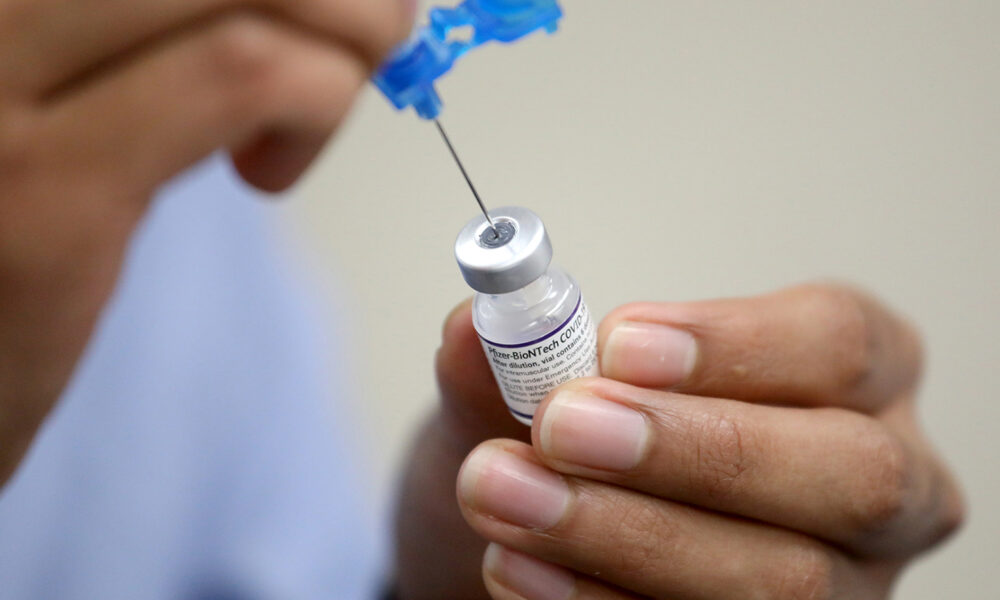More than 420 bills aimed at undermining public health protections have been introduced in state legislatures across the United States in 2023. This legislative wave seeks to challenge established policies regarding vaccines, water fluoridation, and milk safety, reflecting a concerted effort to embed conspiracy theory-driven agendas into law.
An investigation by the Associated Press highlights that this extensive legislative activity has emerged in nearly every state, largely propelled by individuals connected to Robert F. Kennedy Jr., who serves as the Secretary of Health and Human Services. The proposed measures threaten to dismantle a century’s worth of health safeguards that are vital to American society. So far, around 30 bills have been enacted or adopted across 12 states.
The push for these anti-science bills is reportedly being directed by former officials from the Trump administration. Their strategy focuses on shifting public health authority to the states, with the broader aim of transforming national laws and public opinion. This movement is closely linked to the anti-vaccine sentiment that Kennedy has championed for years, promoting a so-called “Make America Healthy Again” agenda that masks anti-science rhetoric under the guise of health freedom.
As vaccination rates continue to decline, diseases like measles and whooping cough are re-emerging. Kennedy’s efforts have included attempts to reshape federal policies on public health, particularly regarding vaccines and fluoridation. Critics argue that the normalizing of conspiracy-driven ideas in public policy poses a significant risk to public health.
Devin Burghart, president of the Institute for Research and Education on Human Rights, voiced concern, stating, “The march of conspiracy thinking from the margins to the mainstream now guiding public policy should be a wake-up call for all Americans.” He added, “People are literally going to die from it as a result.”
The story of the Dahlberg family from Lowell, Indiana, exemplifies the human toll of these policies. They lost their 8-year-old son, Liam, to a vaccine-preventable disease earlier this year. His parents believed vaccination would protect their children. “Unfortunately, it did not because other kids, other adults, need to be vaccinated as well in order for it to work,” said Erik Dahlberg. Liam’s death, attributed to Haemophilus influenzae type b (Hib), has left the family anxious about the low vaccination rates in their community, where statistics indicate that one in five kindergartners do not meet vaccination requirements.
The Dahlbergs are among many families who are now facing the consequences of a growing anti-science movement. Despite the overwhelming evidence of vaccines’ effectiveness—global vaccination efforts have reportedly saved over 150 million lives since 1974—misinformation continues to proliferate. Activists claim that vaccinations cause harm, that fluoride is harmful, and that pasteurization diminishes milk’s nutritional value.
According to the Associated Press, the analysis focused on over 1,000 bills tracked by the National Conference of State Legislatures, revealing that approximately 350 anti-vaccine bills were the most prevalent. These proposals vary widely, from prohibiting discrimination against unvaccinated individuals to banning certain vaccines outright.
While many of these bills have not passed, at least 26 anti-vaccine laws have been adopted in 11 states this year. They often draw inspiration from each other, especially targeting mRNA vaccines, which were instrumental in combating the COVID-19 pandemic. Some legislation in Minnesota has even labeled these vaccines as “weapons of mass destruction.”
The political landscape surrounding vaccines has shifted significantly, especially during the pandemic. Dorit Reiss, a vaccine law expert at UC Law San Francisco, noted that extreme vaccine bills have gained traction as conspiracy theories resonate during times of uncertainty.
The coalition supporting these measures includes groups with ties to Kennedy, such as MAHA Action, Stand for Health Freedom, the National Vaccine Information Center, and the Weston A. Price Foundation. These organizations not only advocate for anti-science legislation but have also opposed numerous science-based initiatives, including bills aimed at enhancing rabies vaccination requirements for pets.
The connections between these groups and Kennedy are notable. For example, MAHA Action has been led by individuals closely associated with Kennedy, including his longtime book publisher and former campaign staff. Their collective efforts reflect a sophisticated political operation that extends beyond mere parental concern.
In Indiana, Republican Rep. Bruce Borders has sponsored bills to allow individuals to opt out of employer vaccine mandates and to require vaccine manufacturers to conduct specific safety studies. Borders cites personal motivations regarding his grandson’s health, despite the lack of credible scientific support for his claims.
The legislative efforts are often couched in terms of personal freedom. However, lawmakers advocating for science-driven policies argue that personal choices can endanger public health. Rep. Andy Vargas, a Massachusetts Democrat, has been campaigning to eliminate religious exemptions from childhood vaccines, emphasizing the importance of collective responsibility in safeguarding public health.
The Dahlbergs’ experience serves as a stark reminder of the real consequences of declining vaccination rates. Following Liam’s tragic death, Ashlee Dahlberg initiated a petition to eliminate religious exemptions in public schools nationwide. She expressed hope that her story could reach parents undecided about vaccinations, emphasizing the need to protect her surviving children from vaccine-preventable diseases.
As the legislative battle continues, families like the Dahlbergs face an uncertain future, caught in the crossfire of a movement that challenges decades of public health progress. The conversation surrounding vaccination and public health remains critical, with the stakes growing higher for communities across the United States.







